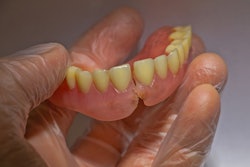
Online reviews are the new word of mouth for dentistry. These virtual endorsements can significantly influence potential patients and shape the public's image of your care.
When a patient leaves feedback, responding thoughtfully isn't just courteous, it reflects your practice's dedication to patient satisfaction. And remember, anyone can see your response, so it's as much about others' perceptions of your practice as the original reviewer's.
From challenge to opportunity: Responding to negative reviews
A negative review can feel like a punch in the gut. However, viewing the feedback as an opportunity to highlight your practice's commitment to patient satisfaction can transform it into an asset. When responding to a negative patient review, take the following steps:
- Be prompt and professional in your response. Address concerns promptly and professionally. Apologize for any issues experienced and offer to discuss matters offline to resolve them. When you respond to the review, avoid violating HIPAA by responding in generalities and not about the specific person. For example, if they claim no x-rays were taken, state that your office policy is to always take x-rays for new patients without explicitly referencing the reviewer's experience.
- Turn negatives into positives. Negative feedback is your opportunity to showcase your commitment to customer service and patient care. A thoughtful, genuine response may turn a dissatisfied patient into a loyal one or at least placate them. More importantly, potential patients may view your professional response to a negative review as a sign that your practice takes feedback seriously and is well run. No one expects perfection, but people expect a business to handle issues professionally.
- Protest a review for removal. You can't object to a review simply because you disagree with what the reviewer says. However, you may request removal if the content violates Google's policies, including:
- Fake engagement
- Harassment
- Hate speech
- Offensive content
- Obscenity and profanity
Report reviews through Google Maps and clicking Flag as Inappropriate or through Google Search and clicking Report Review.
Practice consistency: Promptly respond to all reviews
Every review represents a patient who took time out of their busy day to share their experience with your practice. It's only fitting they receive the same consideration in return. Responding to every review -- positive or negative -- is crucial; it builds trust and credibility and enhances your online visibility. Below are some tips as you craft your response:
- Build relationships. Each response is a chance to strengthen relationships. People want to feel like their viewpoint matters, so whether you're thanking someone for a positive review or addressing a concern, you show you value feedback and care about patient experiences.
- Boost your practice's online reputation. Consistent, thoughtful responses improve your practice's reputation and make your commitment to patient satisfaction clear to prospective patients.
- Be mindful of legal and ethical issues. It's essential to consider the legal and ethical aspects of public interactions and ensure your responses comply with privacy laws and professional guidelines. Under HIPAA, do not disclose protected health information in your responses, including avoiding specifics about the patient's treatment, conditions, or any identifying information.
- Be mindful of your response's visibility. A response to a review often influences consumers more than what the original poster wrote. A well-thought-out response can turn even the most negative review into a positive advertisement for your professionalism.
Show gratitude by recognizing positive reviews
Positive reviews are golden opportunities to reinforce patient relationships and attract new ones. Remember to consider their impact as compelling online endorsements and within your practice as confirmation of your commitment to excellence. Here's how to respond effectively:
- Express gratitude. Always thank the patient for taking the time to leave feedback and for their kind words. Publicly acknowledging each reviewer makes them feel seen and appreciated and subtly encourages others to share their experiences.
- Personalize your responses. Tailor each response to the review, reflecting on specific details. Doing so demonstrates that you value their input enough to engage personally, which can make all the difference in showing genuine care. However, remember to adhere to HIPAA guidelines by avoiding specific details about the patient's treatment or condition in your public responses.
- Market positively. Use positive reviews in your marketing strategy by occasionally sharing them on your website or social media, always with respect for patient privacy.
Get more reviews for your practice
Encouraging a steady stream of reviews is critical for maintaining a strong online presence. By actively seeking out and valuing patient feedback, you reinforce the message that their opinions help shape the quality of care you provide. To encourage reviews from your patients, implement these practices with your patients:
- Follow up with patients immediately. Shortly after a patient's visit, send a personalized email or text message thanking them and inviting them to leave a review.
- Make it easy to provide feedback. Make it convenient for patients to leave reviews. Include direct links to your practice's profile on popular review platforms in your emails and newsletters.
- Encourage keyword usage. Suggest patients mention specific treatments or services they received, such as Invisalign or dental implants. This helps your practice rank higher in search results for those keywords, making it easier for potential patients to find you.
- Use digital tools. Leverage social media to remind patients of their positive experiences and encourage them to share their thoughts online.
- Offer "review" cards. Provide patients with physical "review reminder" cards with QR codes that link directly to your review page.
- Involve your staff. Train your team to recognize the right moment to ask for a review, such as when a patient expresses satisfaction with their service.
- Post in-office signage. Display friendly signs in your office reminding patients you welcome and value their feedback.
Incorporating these actions into your daily operations will promote a culture where patients know their feedback is actively sought and valued. Over time, these practices will become second nature, leading to a seamless and natural process that enhances patient engagement and your practice's reputation.
Mastering reviews to forge stronger patient bonds
Responding to reviews requires sincerity, tact, and strategic thinking. Engaging professionally with all types of reviews enhances your online reputation and builds stronger relationships with your patients, laying the foundation for a thriving dental practice.
Although Jeff Gladnick comes from a family of seven dentists, he never received “the calling” and instead became a software engineer. After creating a website for his dad’s clinic, he was approached by other members of his family to create their websites and eventually founded Great Dental Websites. What started as a family project has evolved into the company it is today, serving more than 900 practices worldwide.
The comments and observations expressed herein do not necessarily reflect the opinions of DrBicuspid.com, nor should they be construed as an endorsement or admonishment of any particular idea, vendor, or organization.



















